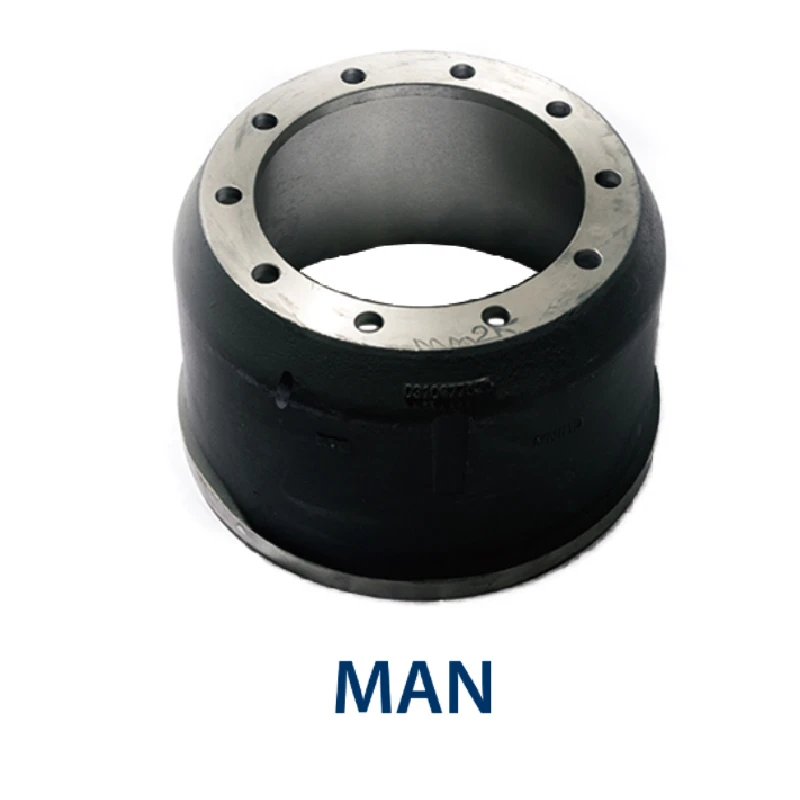Nov . 08, 2024 09:25 Back to list
Common Issues and Solutions for Car Brake Drum Performance and Maintenance
Common Problems with Car Brake Drums
Brake drums are a critical part of a vehicle's braking system, particularly in older cars and certain types of rear brake setups. They work by using friction to slow down the wheels, which slows the vehicle. Despite their reliability, brake drums can encounter various issues over time, affecting overall car performance and safety. Understanding these common problems can help you maintain your vehicle and ensure it operates smoothly.
1. Worn Brake Shoes
One of the most common issues with brake drums is the wear and tear of the brake shoes inside them. Brake shoes are equipped with a friction material that creates the necessary force to stop the vehicle. Over time, this friction material can wear down, leading to decreased stopping power. A driver may notice this through a longer stopping distance or a grinding noise when braking. Regularly checking the brake shoes for wear is essential for maintaining optimal braking performance.
Over time, brake drums can develop grooves or scores on their surface due to the constant friction against the brake shoes. This scoring can affect the drum's ability to provide effective stopping power. When a drum is scored, it can lead to uneven wear on the brake shoes, resulting in reduced braking efficiency. In some cases, a professional may be able to machine the drum to restore its surface, but if the scoring is too severe, replacement may be necessary.
3. Brake Drum Warping
Heat is a significant factor when it comes to brake performance. As the brakes are applied, they generate heat, which can sometimes cause the brake drums to warp, especially if the brakes are subjected to extreme conditions, such as heavy towing or frequent hard braking. A warped drum can lead to a pulsating sensation when the brakes are applied, indicating that they are not making even contact with the brake shoes. This issue can create a safety hazard, as it may reduce the vehicle's stopping power and lead to brake fade.
car brake drum problems

4. Moisture and Corrosion
Brake drums are typically made of cast iron or steel, materials that can rust when exposed to moisture. When water seeps into the braking system, it can cause corrosion on the drum surface, leading to pitting and degradation. Corroded brake drums can impede the function of the brake shoes and may even lead to complete failure. It’s essential to regularly inspect the braking system for signs of moisture accumulation and corrosion, especially in regions with high humidity or during winter months when salt is used on roads.
5. Improper Installation or Adjustment
When brake drums are replaced or serviced, improper installation or adjustment can lead to several issues. If the drum is not centered correctly, it can create uneven wear on both the drum and the brake shoes. Similarly, incorrect adjustment of the brake shoes can result in insufficient contact with the drum, leading to weak braking performance. It’s vital to follow manufacturer guidelines during installation and to have the braking system checked regularly by a qualified technician.
6. Brake Drum Noise
Unusual noises during braking, such as squealing or grinding, can indicate problems with the brake drum system. Squealing often signals that the brake shoes are worn and need replacing. Grinding noises typically mean that the brake shoes have worn down to the point where metal meets metal, which can quickly damage the drum and necessitate more extensive repairs.
Conclusion
Brake drums play a crucial role in ensuring your vehicle can stop safely and effectively. By being aware of common problems such as worn brake shoes, scoring, warping, corrosion, improper installation, and unusual noises, you can take proactive steps to maintain your braking system. Regular inspections and timely repairs not only enhance your vehicle’s performance but also ensure safety for you and others on the road. If you notice any issues with your brakes, it’s vital to consult a professional mechanic to address the problem before it escalates.
-
Durable Brake Drum MAZ for Heavy Duty Trucks | High Performance
NewsAug.26,2025
-
FUWA: Premium Quality, Reliable Performance & Innovative Solutions
NewsAug.25,2025
-
Liza Brake Drum: Superior Quality & Performance for Safe Driving
NewsAug.24,2025
-
Iveco Brake Drum | Premium OE Quality for Daily & Eurocargo
NewsAug.22,2025
-
Your Brake Drum Man: Quality & Performance Parts
NewsAug.21,2025
-
Explore Japan: Ultimate Travel Guide & Authentic Experiences
NewsAug.19,2025
